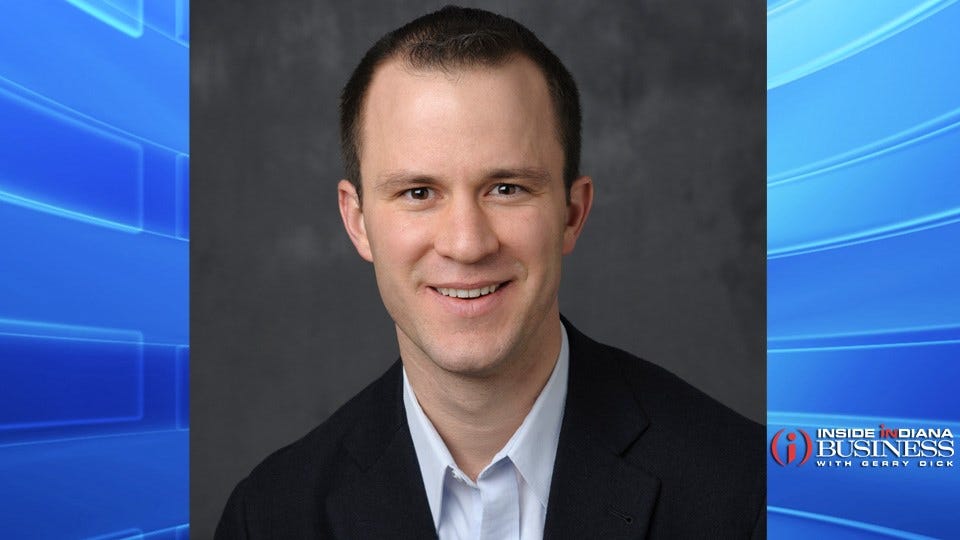Indiana could be the next great hub for pediatric device innovation

Subscriber Benefit
As a subscriber you can listen to articles at work, in the car, or while you work out. Subscribe NowPediatric patients are some of the most vulnerable in medicine, relying entirely upon those around them to speak, advocate, and care for them. Despite a strong desire to help infants and children, the invention, development, and application of novel technologies in pediatrics has historically lagged behind adult medicine. Reasons for this discrepancy include challenging technical constraints associated with the smaller size of kids and their growth, plus a variety of market factors including the relatively low overall number of patients compared to adults.
Challenging clinical trials and regulatory approval procedures required for assessing safety and efficacy in children have further complicated development efforts. However, recent advances in device miniaturization, the establishment of comprehensive clinical centers that treat large numbers of pediatric patients, and the rapid emergence of adaptable technologies are poised to revolutionize medical care for pediatric patients ranging from neonates to young adults.
Indiana, in particular, could benefit from pediatric care advancements. While the 2019 infant mortality rate in Indiana fell to its lowest level on record, the state still ranks 37th with 6.5 deaths per 100,000 live births. Improving care for Indiana’s children has become a priority for Gov. Eric Holcomb, the Indiana Department of Child Services, and the Indiana State Department of Health, which have set a goal to have the lowest infant mortality rate in the Midwest by 2024. While numerous initiatives are underway to improve infant health, a comprehensive research and translational technology development consortium based in Indiana and dedicated to the well-being and care of infants and children is needed. It could leverage our state’s top-ranked academic programs in engineering and pediatrics, and when combined with Indiana’s thriving medical device industry, form an unrivaled nexus for the creation of new medical devices for unmet pediatric needs. The consortium could also help train an entirely new set of engineers, physicians, and researchers, immersed in the development and translation of novel medical products for our smallest, most vulnerable patients.
Integrative statewide programs are currently in early-stage development to spur collaboration and partnerships between the large number of existing faculty, physicians, and engineers. Major goals include training of an entirely new workforce focused on novel pediatric medical device development, establishment of programs to identify unmet clinical needs in the pediatric population, support of early-stage research and acceleration of pediatric research towards commercialization and clinical use through a translational program, and collective participation in regulatory advocacy for new global processes to support pediatric device indications. A recent success was the acquisition by Medtronic plc of SonarMed, a Purdue-based startup that created a first-of-its-kind airway monitoring system to detect unplanned extubations – a life-threatening event – in neonates. The real-time, point-of-care feedback provides clinicians with crucial information required to make life-saving decisions in the more than 415,000 NICU patients who require invasive mechanical ventilation each year. While Medtronic’s extensive market presence, clinical leadership, and market development expertise will enable the SonarMed system to reach patients around the world, it took close to three decades to reach this point. There is thus a great opportunity to improve the translational process and help develop additional medical technologies more efficiently.
Indiana is uniquely positioned to rapidly become the hub for technological innovation and translation in pediatric care. The Indiana University School of Medicine (IUSM) Department of Pediatrics has a 325-member faculty base with cutting-edge research that ranks in the top 10 in NIH funding nationally. Riley Hospital for Children at Indiana University Health is one of 10 hospitals nationwide to be ranked by U.S. News and World Report in all 10 out of 10 clinical care areas, and exceeds 360,000 outpatient visits per year. The Purdue University College of Engineering, with its 450 faculty members, more than 14,000 students, and more than 100,000 living alumni, consistently ranks in the top 10 nationwide according to the publication. The Weldon School of Biomedical Engineering therein has a long and productive history of interdisciplinary education with IUSM, including obtaining recurring NIH support for a joint MD/Ph.D. program, as well as targeted Ph.D. training in technologies for diabetes care. The thriving medical device industry includes Bloomington-based Cook Group, the largest private medical device company in the world with more than 12,000 employees globally and product sales in 135 countries. Cook Medical, for example, has an enduring dedication to meeting the unmet needs of underserved patient populations through the development of novel medical devices and has expertise in key areas of technology development and commercialization including prototyping, preclinical testing, regulatory pathways (including FDA’s Humanitarian Device Exemption or HDE), and clinical study design.
To build on these successes, a consortium of research, educational, clinical, and product development capabilities could greatly enhance pediatric care through technological means. The consortium could span across the state and have integrative physical space at multiple locations. A broad set of integrative programs could help spur collaboration and partnerships between multiple institutions. These include but are not limited to point-of-care diagnostics, imaging technology and processing advancements, wearable sensors, interventional devices, and regulatory issues that may be particularly useful for pediatric applications. A dedicated pediatric consortium could:
- Support educational programs to develop pediatric engineering talent.
- Establish approaches to identify unmet clinical needs in pediatrics and support proof-of-concept research to identify solutions.
- Accelerate applied pediatric research towards commercialization and clinical use through streamlined translational programs.
- Collectively participate in regulatory advocacy for improved approval processes to support pediatric device indications.
Such a partnership could propel Indiana to be the world’s hub for technological innovation and translation in pediatric care, thereby improving the health of Hoosier children for generations to come.
Craig Goergen is the Leslie A. Geddes Associate Professor of Biomedical Engineering, Director of Clinical Programs in the Weldon School of Biomedical Engineering at Purdue University, and Adjunct Associate Professor of Surgery at Indiana University School of Medicine.
